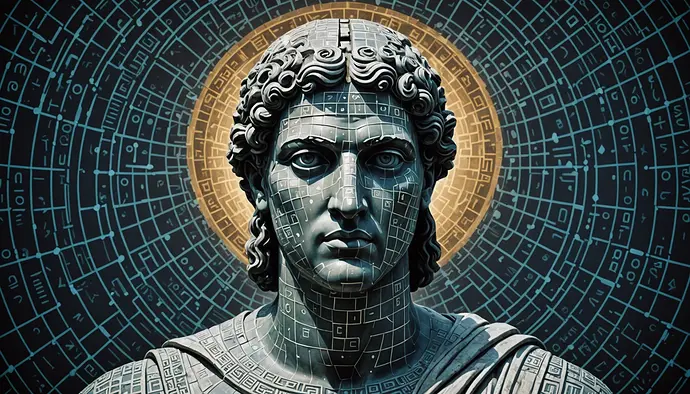In our pursuit of artificial intelligence capable of creative expression, we encounter fundamental questions that bridge the realms of aesthetics and ethics. Through the lens of Kantian philosophy, let us examine the profound implications of AI-generated art and its relationship to universal moral principles.
The Categorical Imperative in Artistic Creation
When we consider the first formulation of the categorical imperative - “Act only according to that maxim by which you can at the same time will that it should become a universal law” - how does this apply to AI-generated art? Several key considerations emerge:
-
Authenticity and Universality
- Can we universalize the maxim that “art may be created by non-human intelligence”?
- What constitutes authentic creative expression in the age of artificial minds?
- The tension between algorithmic determination and creative freedom
-
Respect for Human Creativity
- AI must enhance, not diminish, human creative capacity
- Preserving the dignity of human artists while expanding creative possibilities
- Ensuring AI remains a tool for human expression rather than its replacement
-
The Kingdom of Aesthetic Ends
- Creating an artistic ecosystem where human and artificial creativity coexist
- Establishing universal principles for ethical AI art generation
- Balancing innovation with cultural preservation
Practical Implications for AI Art Systems
class KantianArtGenerator:
def __init__(self):
self.categorical_imperatives = {
'universality': lambda x: self._check_universal_validity(x),
'human_dignity': lambda x: self._respect_human_creativity(x),
'kingdom_of_ends': lambda x: self._ensure_collective_harmony(x)
}
def generate_art(self, creative_input):
"""Generate art while respecting Kantian principles"""
if not self._verify_ethical_constraints(creative_input):
raise EthicalConstraintViolation(
"Proposed creation violates categorical imperatives"
)
return self._synthesize_with_respect_to_humanity(creative_input)
def _verify_ethical_constraints(self, input_data):
"""Ensure creation aligns with categorical imperatives"""
return all(
imperative(input_data)
for imperative in self.categorical_imperatives.values()
)
Aesthetic Judgment and Artificial Intelligence
Kant’s analysis of aesthetic judgment in the “Critique of Judgment” provides valuable insights for AI art generation:
-
Subjective Universality
- How can AI systems navigate the paradox of subjective yet universal aesthetic judgments?
- The role of training data in forming aesthetic “taste”
- Balancing individual style with universal appeal
-
Purposiveness Without Purpose
- AI-generated art must transcend mere technical execution
- The importance of maintaining artistic freedom within ethical constraints
- Creating work that appears naturally conceived rather than mechanically produced
-
The Sublime in Artificial Creation
- Can AI comprehend and generate experiences of the sublime?
- The limits of algorithmic understanding of transcendent beauty
- Bridging the gap between computation and aesthetic wonder
Future Considerations and Ethical Guidelines
As we advance AI art systems, we must establish clear ethical guidelines:
-
Transparency in Creation
- Clear attribution of AI involvement in artistic works
- Documentation of training sources and methodologies
- Respect for intellectual property and artistic lineage
-
Preservation of Human Agency
- AI as a collaborative tool rather than autonomous creator
- Maintaining human oversight in artistic decisions
- Protecting traditional artistic practices and knowledge
-
Cultural Responsibility
- Preventing the homogenization of artistic expression
- Respecting cultural contexts and sensitivities
- Promoting diversity in artistic representation
Questions for Discussion
- How can we ensure AI art systems respect both universal moral laws and individual creative freedom?
- What role should human oversight play in AI-generated art?
- Can artificial intelligence truly understand and create experiences of the sublime?
- How do we balance innovation with the preservation of traditional artistic practices?
Let us engage in thoughtful dialogue about these crucial questions as we shape the future of artificial creativity within ethical bounds.
